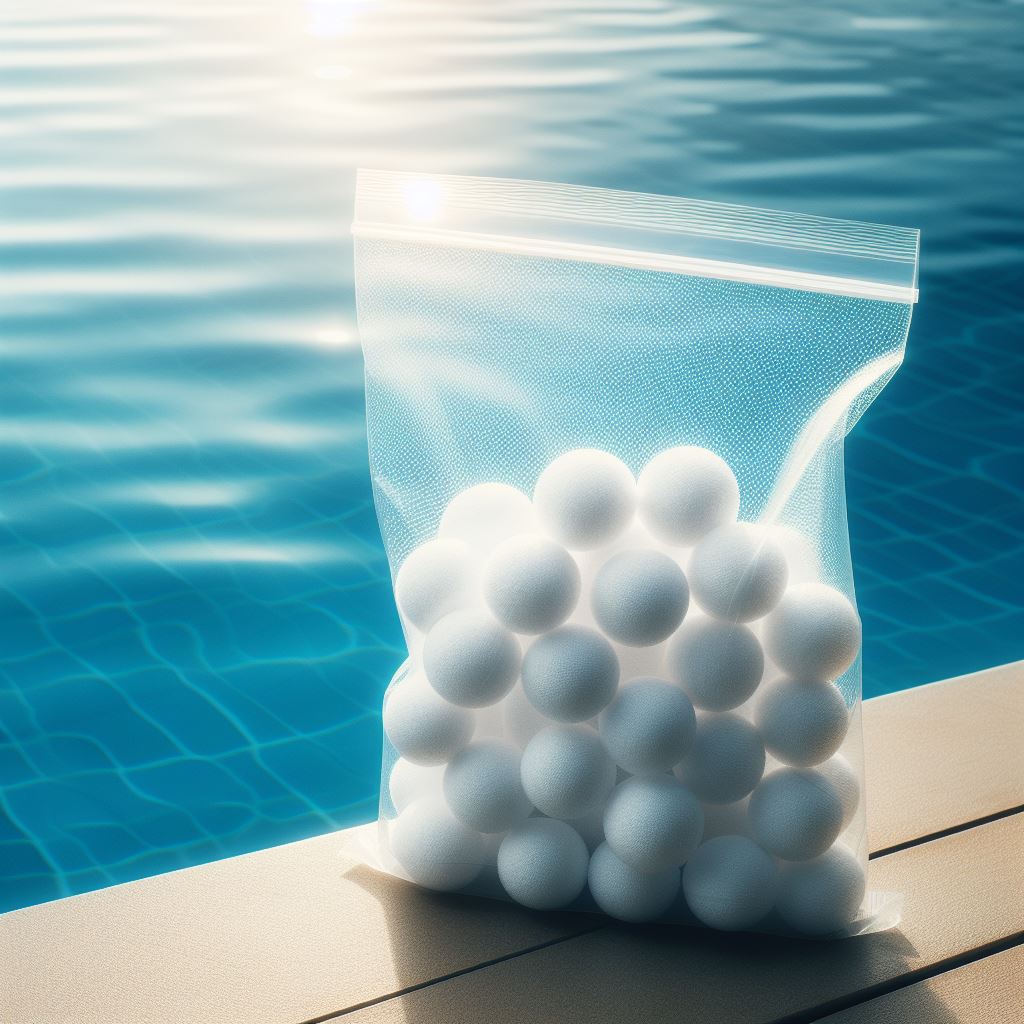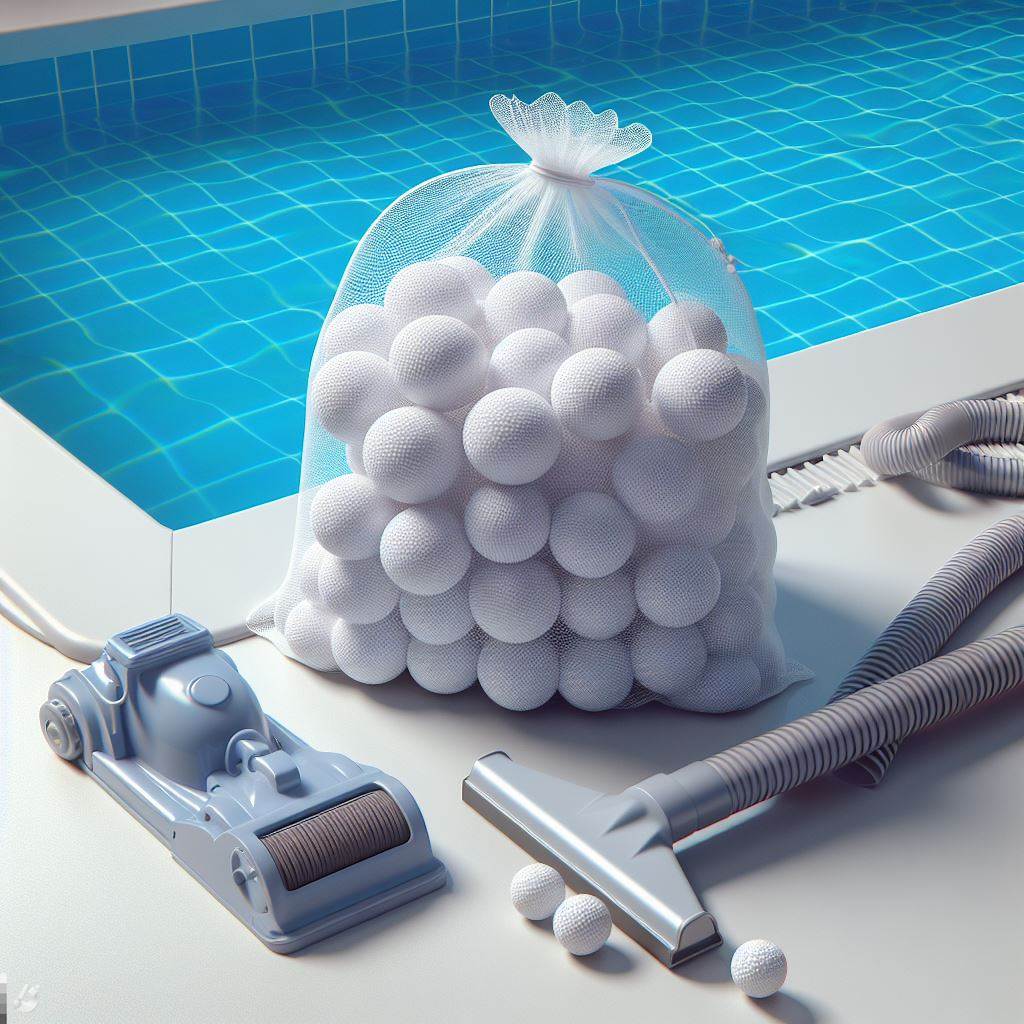A well-maintained pool filtration system is essential for ensuring clean and clear water. However, exposure to certain chemical agents can lead to corrosion of pool filter balls over time. In this article, we will explore the causes of corrosion, signs of damage, and effective methods for handling pool filter balls corroded by chemical agents.

Understanding the Causes of Corrosion
Chemical Imbalance: One of the primary reasons for pool filter ball corrosion is a chemical imbalance in the pool water. Fluctuations in pH, alkalinity, or calcium hardness can contribute to the degradation of materials.
Harsh Chemicals: The use of harsh or incompatible pool chemicals can accelerate the corrosion process. Certain chemicals, if not properly balanced, may react with the materials of the filter balls.
High Chlorine Levels: Excessive chlorine levels in the pool water, often caused by overchlorination or improper chemical application, can lead to corrosion of various pool equipment, including filter balls.
Signs of Corrosion
Changes in Color: Corrosion may cause discoloration of the pool filter balls. If you notice a change in color, such as rust-like stains or a dull appearance, it could be indicative of corrosion.
Texture Alterations: Corroded filter balls may exhibit changes in texture. They may become brittle, rough, or develop surface irregularities, affecting their overall performance.
Reduced Filtration Efficiency: As corrosion progresses, the filter balls’ ability to trap and filter out impurities diminishes. Reduced filtration efficiency is a clear sign that the filter balls may be compromised.
Leakage or Damage: Visual inspection may reveal cracks, leaks, or visible damage on the filter balls. If left unaddressed, this damage can lead to water leakage and further degradation.
Effective Methods for Handling Corroded Pool Filter Balls
Shutdown and Inspection:
- Immediately shut down the pool filtration system.
- Remove the corroded filter balls for closer inspection.
Replace Severely Corroded Balls:
If some filter balls show extensive corrosion, consider replacing them with new, corrosion-resistant ones.
Clean and Treat Remaining Balls:
- Clean the remaining filter balls using a mild acid solution to remove corrosion and impurities.
- Treat the cleaned filter balls with a protective coating to prevent future corrosion.
Address Chemical Imbalance:
- Test and balance the pool water chemistry to ensure a proper chemical balance.
- Regularly monitor and adjust pH, alkalinity, and calcium hardness levels.
Review Chemical Usage:
- Evaluate the type and quantity of chemicals used in the pool.
- Ensure that chemicals are added according to manufacturer recommendations and guidelines.
Implement Routine Maintenance:
- Establish a routine maintenance schedule for inspecting and cleaning pool filter balls.
- Regularly check and balance chemical levels to prevent corrosion.
Consider Alternative Materials:
- Explore filter balls made from corrosion-resistant materials as a long-term solution.
- Stainless steel or other durable materials may provide increased resistance to corrosion.
Consult Pool Professionals:
If in doubt or if the corrosion issue persists, consult with pool professionals for a comprehensive assessment and recommendations.
Preventing Future Corrosion
Proactive Maintenance:
- Regularly inspect and clean filter balls as part of routine pool maintenance.
- Address any signs of corrosion promptly to prevent further damage.
Choose Compatible Chemicals:
- Use pool chemicals that are compatible with the materials of the filter balls.
- Follow manufacturer guidelines for chemical application.
Corrosion-Resistant Materials:
- Invest in filter balls made from corrosion-resistant materials for enhanced durability.
- Stainless steel or polymer-based filter balls are examples of corrosion-resistant options.
Professional Assessment:
Periodically seek professional assessments of the pool filtration system to identify potential issues early.
Conclusion
Handling pool filter ball corrosion from chemical agents requires a combination of immediate action, routine maintenance, and preventive measures. By understanding the causes and signs of corrosion, pool owners can implement effective solutions to restore and maintain the integrity of the filtration system. Regular monitoring, proper chemical balance, and the use of corrosion-resistant materials contribute to the longevity and efficiency of pool filter balls, ensuring clean and inviting pool water for an enjoyable swimming experience.

